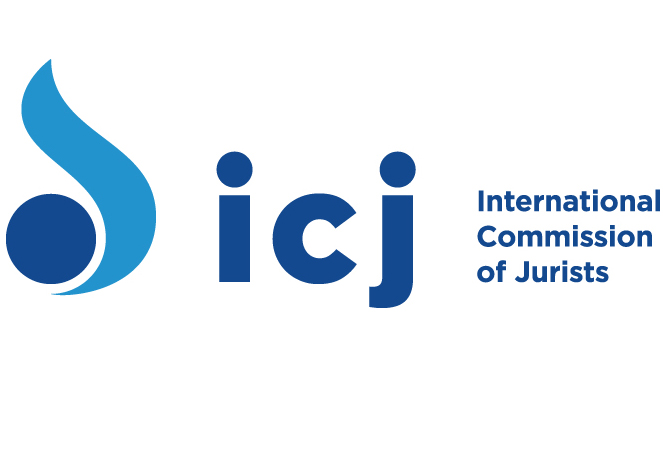
Apr 30, 2015 | News
The ICJ welcomes yesterday’s adoption, by the UN Working Group on Arbitrary Detention, of the Working Group’s “Basic Principles and Guidelines on Remedies and Procedures on the Right of Anyone Deprived of His or Her Liberty by Arrest or Detention to Bring Proceedings Before Court”.
Under its resolution 20/16 (2012), the UN Human Rights Council requested the Working Group to prepare draft basic principles and guidelines on habeas corpus. The Working Group set out a first draft set of principles and guidelines ahead of its global consultation on the subject in September 2014. From 2 to 5 February 2015, the Working Group met to continue its elaboration of the Basic Principles and Guidelines, resulting in the adoption of a second draft. The Working Group adopted its final iteration of the document at the conclusion of its session on 29 April 2015. The Basic Principles and Guidelines will be presented to the Human Rights Council during the Council’s 30th regular session, to be held from 14 September to 2 October 2015.
The ICJ welcomes the Basic Principles and Guidelines as a means of assisting States to enhance, in law and in practice, respect for the right to habeas corpus. It especially welcomes certain aspects of the document, including:
- Paragraph 68, in which applicable qualifications are set out to any derogating measures to accommodate constraints on the application of some procedural elements of the right to habeas corpus;
- Principle 6 and Guideline 4 which reaffirm that habeas corpus petitions must be heard by courts that bear all characteristics of competence, independence and impartiality (paras 27, 70 and 72(a)), that competence includes the power to order immediate release if detention is fund to be arbitrary or unlawful (para 27), that immediate implementation of such orders is required (para 71(c)) and that courts must give reasoned and particularized decisions (para 71(d));
- Guideline 7, in which it is provided that individuals are entitled to take proceedings multiple times (paras 81 and 82), that expediency is required, including in cases of subsequent challenges, and especially in cases alleging, among other things, torture or ill-treatment (para 83) and that authorities remain obliged to ensure regular review of the continuing need for detention (para 84);
- Principle 9 and Guideline 8 concerning legal representation and legal aid;
- The clarifications in Principle 10 and Guideline that persons able to bring proceedings include counsel, family members or other interested parties, whether or not they have proof of the consent of the detainee (paras 34 and 92) and that no restrictions may be imposed on a detainee’s ability to contact such persons (para 35);
- The express recognition in Guideline 12 that information obtained by torture or other forms of ill-treatment may not be used in evidence;
- Guideline 13 concerning disclosure and limitations applicable to any non-disclosure of information on security or other grounds;
- Guideline 14, reflecting authorities’ obligation to justify the need and proportionality of detention;
- Principle 15 and Guideline 16 (on remedies), reflecting the overarching right to remedies and reparation (paras 43), the need for authorities to give immediate effect to an order for release (para 44) and the right to compensation, restitution, rehabilitation, satisfaction and guarantees of non-repetition (paras 109-112); and
- Principle 16 concerning the application of Article 9(4) of the International Covenant on Civil and Political Rights (ICCPR) alongside international humanitarian law (paras 45 and 47), the application of Article 9(4) to civilians in an international armed conflict (para 47), the application of habeas principles to prisoners of war (para 48), and the question of administrative detention or internment in the context of a non-international armed conflict (para 49).
The ICJ has engaged in all stages of the Working Group’s elaboration and consultations. It made written submissions in November 2013, April 2014 and March 2015. Its staff, Matt Pollard and Alex Conte, gave panel presentations at the September 2014 global consultation.

Mar 20, 2015 | Advocacy, Non-legal submissions
Today, the ICJ made a submission to the Universal Periodic Review of Myanmar.
The submission brings to the attention of the members of the Human Rights Council’s Working Group issues concerning:
- The independence of the judiciary and legal profession;
- The lack of legislation adequately protecting human rights and the environment;
- Discriminatory laws targeting women and minorities; and,
- The writ of habeas corpus.
Myanmar-UPR-Advocacy-2015-ENG

Mar 16, 2015 | Advocacy, Legal submissions
The ICJ has made further submissions to the UN Working Group on Arbitrary Detention on its elaboration of Draft Principles and Guidelines on habeas corpus.
In February 2015, the Working Group released for public input a revised set of ‘Draft Principles and Guidelines on remedies and procedures on the right of anyone deprived of his or her liberty by arrest or detention to bring proceedings before a court without delay, in order that the court may decide without delay on the lawfulness of his or her detention and order his or her release if the detention is not lawful’.
The ICJ’s submission welcomes the elaboration by the Working Group of the revised Draft Principles and Guidelines as a means of assisting States to enhance, in law and in practice, respect for the right to habeas corpus and especially welcomes certain aspects of the document. It suggests means of further improving the revised Draft Principles and Guidelines, concerning:
- The temporary nature of any derogating measures impacting upon the application of some procedural elements of the right to habeas corpus;
- The competence of courts to make orders for immediate release;
- The implementation of court orders for release;
- The public nature of judicial decisions following adjudication of habeas corpus petitions;
- Guarantees applicable to specialized tribunals;
- The right to legal aid and legal assistance;
- Confirming that the procedure must be available at all times and to all detained persons, including prisoners or war, as a remedy to protect non-derogable rights such as the prohibition against torture and ill-treatment; and
- The inadmissibility of evidence obtained by torture.
The Working Group will present its final draft to the Human Rights Council’s 30th regular session in September 2015.
Attachments
ICJ-WGAD-RevisedDraftPrinciplesAndGuidelines-3rdLegalSubmission-2015-EN (The ICJ’s latest submission in PDF)
WGAD-Habeas-RevisedDraftPrinciplesAndGuidelines-2015-EN (PDF)
Additional links for reference
The ICJ’s first written submissions to the Working Group in November 2013
The ICJ’s second written submissions to the Working Group in April 2014
Panel presentations at the September 2014 Global Consultation by ICJ staff Matt Pollard and Alex Conte

Aug 12, 2014 | Events
Matt Pollard and Alex Conte, of the ICJ’s International Law and Protection Programmes, will give presentations during the Global Consultation on the Right to Challenge the Lawfulness of Detention, to be held in Geneva on 1-2 September 2014.
The UN Working Group on Arbitrary Detention, in cooperation with the Office of the UN High Commissioner for Human Rights, will convene the Consultation. The aim of the two-day meeting is to seek input on the development by the Working Group of draft basic principles and guidelines on remedies and procedures on the right of anyone deprived of his or her liberty, by arrest or detention, to bring proceedings before court, in order that the court may decide without delay on the lawfulness of his or her detention and order his or her release if the detention is not lawful.
ICJ experts, Matt Pollard and Alex Conte, will be members of two panel discussions during the Global Consultation, respectively on the framework, scope and content of the right to court review of detention and on exercise of that right in situations of armed conflict, state of emergency or for counter-terrorism purposes.
The ICJ has already made two written submissions to the Working Group on Arbitrary Detention on the subject, in November 2013 and April 2014.
Go to the OHCHR webpage on the Global Consultation
See the ICJ’s written submissions to the Working Group on Arbitrary Detention

Apr 3, 2014 | Advocacy, Legal submissions
The ICJ today made a further submission to the UN Working Group on Arbitrary Detention.
The ICJ submission addressed a number of issues for a draft set of “Basic Principles and Guidelines” on the right of anyone deprived of liberty to challenge the lawfulness of his or her detention, and the right of victims of arbitrary or unlawful detention to an effective remedy.
The document supplements an earlier submission by ICJ, delivered in November 2013, and responds to a number of questions raised by members of the Working Group when the ICJ appeared before it in its November session. The new submission addresses the following issues:
- The ability of persons other than the detained individual and his or her lawyer to initiate proceedings challenging the detention.
- Entitlement of a detained person to disclosure by the government of information relevant to their detention, in the context of challenging the lawfulness of the detention.
- The right of the detained individual physically to appear before the court.
- The scope of the obligation to provide compensation to victims of arbitrary or otherwise unlawful detention, apart from particular treaty provisions.
- Whether, in terms of the right to remedy and challenge, any distinction is to be drawn between the criminal justice system and other forms of detention such as detention of migrants, detention on psychiatric and various existing administrative regimes.
- Military courts and the right to challenge the lawfulness of detention.
- Whether exceptions to the right to challenge lawfulness of detention before a court exist, under customary international law.
The United Nations Working Group on Arbitrary Detention, which will next meet in Geneva 22 April to 1 May 2014, was requested by the Human Rights Council to prepare the draft “Principles and Guidelines” before the end of 2015. The Working Group is presently developing a first draft. A stakeholder consultation on the draft is contemplated for September 2014.
The new supplemental submission may be downloaded in PDF here: ICJ-Advocacy-WGADhabeas-2ndSubmission-03042014
The earlier submission may be downloaded here.









